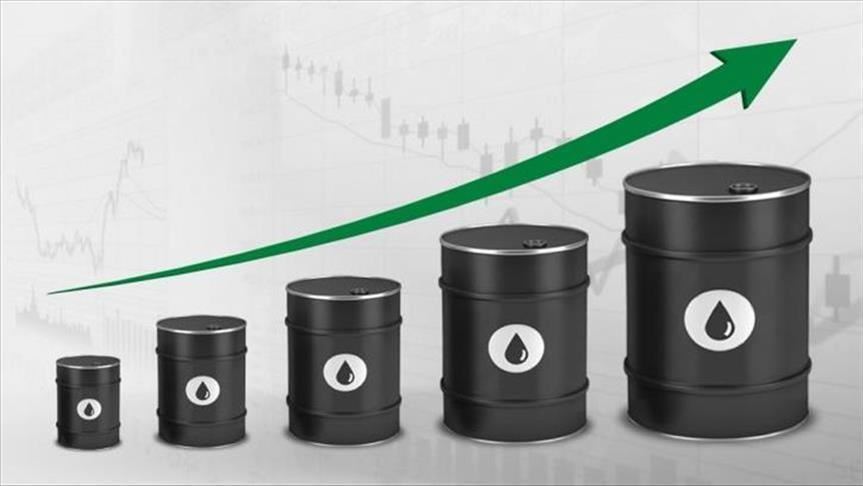ANKARA, TURKEY
Crude oil prices were heading for an average 5% gain for the week ending July 3 with a surprise decline in US crude oil stocks; however, a second wave of the novel coronavirus (COVID-19) threatens these gains with the higher risk of lowering global oil consumption.
International benchmark Brent crude was trading at $42.52 per barrel at 1350 GMT on Friday for a weekly increase of 4.88% after it opened Monday at $40.56 a barrel.
American benchmark West Texas Intermediate was at $40.06 a barrel at the same time for a 5.53% weekly gain after starting the week at $37.96 per barrel.
Both benchmarks each soared 2% during Wednesday and Thursday’s trading with a surprise decline in US crude stocks.
Commercial crude oil inventories in the US fell by 7.2 million barrels, or 1.3%, to 533.5 million barrels for the week ending June 26, the country’s Energy Information Administration (EIA) data revealed on Wednesday. The market expectation was a decrease of 0.7 million barrels.
The shocking decline in US crude oil stocks showed that demand is on the rise in the US — the world’s largest oil-consuming nation.
The arrival of the summer season has already increased oil consumption in North America, Europe and Asia with the rise in vehicle transportation. This provides a positive outlook for global oil consumption through September.
However, the possibility of a second wave of COVID-19 brings back risks for the global oil market, as overall global oil consumption could weaken for the remainder of the year.
Goldman Sachs said Thursday that global oil demand is expected to return to pre-coronavirus levels in 2022 with a pickup in transportation and recovery in major economies.
Global oil demand is estimated to decline by 8% in 2020, compared to last year, and increase by 6% in 2021, and finally fully recover to levels before COVID-19 by 2022, according to the US-based investment banking firm.
On the supply side, with Libya’s preparations to restart oil exports, the risk intensifies of the supply glut on the global oil market increasing to put downward pressure on prices.

